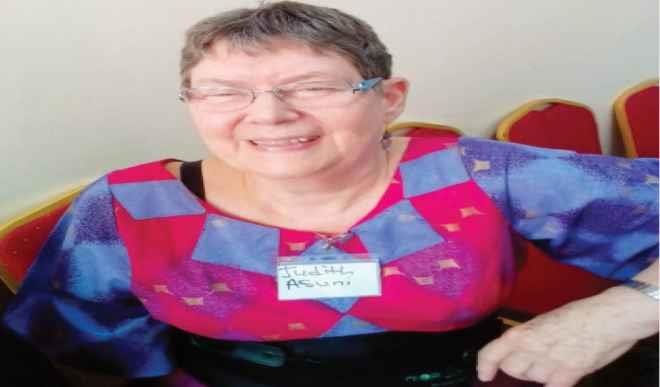
Daily Trust: How did you come about the Niger Delta Dialogue?
Dr Judith Burdin Asuni: The Niger Delta Dialogue started two years ago at a time the militants were destroying oil facilities in Niger Delta, and the government was not engaging the people of the Niger Delta. We started by looking at what we have done before and getting people’s ideas of whatever we want to see in future.
DT: What has been government response to what you are doing concerning peace in Niger Delta?
Asuni: People do not necessarily want to engage government and you never know who to deal with. The civil society groups have to be friendly and over time, you see good responses. Now, we have a number of ministers and representatives at different government levels that are interacting with us. As we travel around the Niger Delta region, people come from different states to meet with us. So gradually and truly, we are doing many things to ensure there is peace building in the region.
DT: Could you tell me the specific success you recorded in terms of peace building in the Niger Delta region especially during the Avenger’s era?
Asuni: We had a very strong hand when the chat started in 2016 and the group had been in our meeting in July 2016 so we interfaced with the leaders of the various armed groups. We had a great hand in dealing with the cease-fire. We have also engaged the government on the issue of budget where we instituted implementation work plan and made our input. Now we are tracking the budget to see that it reflects what is in the document.
DT: People are worried that most government policies are not implemented and this has been the major cause of crisis in the region. What are you doing to ensure that the policies are implemented?
Asuni: The most important thing is to look into the budget implementation plan, to analyze the plan, include it in the budget, and then see how these things are funded. You must have heard that only 50% of the budget was actually funded last year. So how is the budget of the Niger Delta funded? We want to track the implementation of the budget.
DT: Do you intend to work with the private sector in achieving peace in the Niger Delta region?
Asuni: We have invited the private sector a couple of times. We hope to bring the private sector to work with us because the way government requires confidence from us is the same way the private sector requires confidence from us.
DT: Did you adopt any mechanism to ensure confidence building between the companies and the people of the Niger Delta region to ensure that the potentials of the locals are fully exploited?
Asuni: The purpose of the Niger Delta dialogue is to create a space where different parties can safely share ideas on certain issues. We are now in the implementation part and several advocacy bodies are trying to push for implementation. We are also trying to resolve some of the conflicts on issues peculiar to the region.
DT: The youths of the Niger Delta region don’t believe in dialogue. They feel that the only answer they have is violence. What is your advice to them?
Asuni: I have worked for years with members of the militant groups in the Niger Delta, dating back to 2003. We have somebody in the Niger Delta dialogue, an external accessor who came in and said that he wants new ways of doing things instead of shouting. For example, there is Gen Ben who, during a meeting with the Niger Delta Dialogue, said he was responsible for blowing up the oil pipelines. He is now part of the inter-ministerial committee of the Niger Delta. He is part of our dialogue. He attends all our events and gives his ideas. So, that is an example of the change region; a change in the way of doing things from violence to dialogue.
DT: What approach do we expect from you in tackling the issue of conflict resolution in the Niger Delta region?
Asuni: We looked at various issues during our meeting in Port Harcourt. We invited lots of women – some of them were young and others old. I think we have different ways of working with women and we want to work with civil society to see how we can implement the things we have on ground. We also want to work with the media. The media can help to educate the people of the region about what government is really doing and help to bring the issues of the region to the attention of the government as well.
DT: How do you engage the youths to have a mindset in terms of good leadership?
Asuni: The Academic Peaceworks is an NGO that actually started the Niger Delta Dialogue. We have done a lot to enlighten and educate the youths especially the militants and cult leaders, to change their mindset for peace in the Niger Delta.

 Join Daily Trust WhatsApp Community For Quick Access To News and Happenings Around You.
Join Daily Trust WhatsApp Community For Quick Access To News and Happenings Around You.


